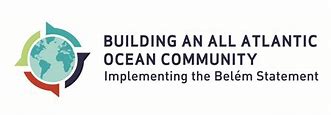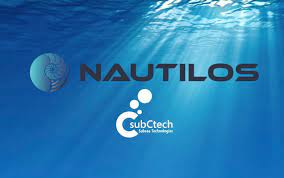Program and project
Type of resources
Topics
Keywords
Contact for the resource
Provided by
Years
Representation types
-

The All-Atlantic Ocean Research and Innovation Alliance (AAORIA) is the result of science diplomacy efforts involving countries from both sides of the Atlantic Ocean. It builds upon the success of two existing cooperative agreements – the Galway Statement on Atlantic Ocean Cooperation which was signed by the European Union, United States, and Canada in 2013; and the Belem Statement on Atlantic Ocean Research and Innovation Cooperation which was signed by the European Union, Brazil, and South Africa in 2017 as well as on several other bilateral and multilateral agreements. AAORIA aims to enhance marine research and innovation cooperation along and across the Atlantic Ocean. In 2022, the “All-Atlantic Declaration” was signed to revitalize collaboration among current initiatives and enhance the coordination between the Galway Working Groups, All-Atlantic Joint Pilot Actions, and related projects. Additionally, it aims to engage new partners and initiatives to join the All-Atlantic community.
-

The technologies developed will expand our knowledge of the ocean’s interconnected systems and provide tangible benefits to the industries that rely on them, such as fisheries and aquaculture. The data generated will also support conservation initiatives and provide vital information to policy makers. The future impact of these valuable technologies relies on their accessibility. Therefore, TechOceanS technology pilots will be low-cost and place minimal demands on existing infrastructure, allowing them to be made available for use by all countries regardless of resources. TechOceanS will also work with the IOC-UNESCO to develop “ocean best practices” standards for training and monitoring of metrology and ocean systems.
-

NAUTILOS, a Horizon 2020 Innovation Action project funded under EU’s the Future of Seas and Oceans Flagship Initiative, aims to fill in marine observation and modelling gaps for biogeochemical, biological and deep ocean physics essential ocean variables and micro-/nano-plastics, by developing a new generation of cost-effective sensors and samplers, their integration within observing platforms and deployment in large-scale demonstrations in European seas. The principles underlying NAUTILOS are those of the development, integration, validation and demonstration of new cutting-edge technologies with regards to sensors, interoperability and embedding skills. The development is always guided by the objectives of scalability, modularity, cost-effectiveness, and open-source availability of software products produced. Bringing together 21 entities from 11 European countries with multidisciplinary expertise, NAUTILOS has the fundamental aim to complement and expand current European observation tools and services, to obtain a collection of data at a much higher spatial resolution, temporal regularity and length than currently available at the European scale, and to further enable and democratize the monitoring of the marine environment to both traditional and non-traditional data users.
-

OSPAR is the mechanism by which 15 Governments & the EU cooperate to protect the marine environment of the North-East Atlantic. OSPAR started in 1972 with the Oslo Convention against dumping and was broadened to cover land-based sources of marine pollution and the offshore industry by the Paris Convention of 1974. These two conventions were unified, up-dated and extended by the 1992 OSPAR Convention. The new annex on biodiversity and ecosystems was adopted in 1998 to cover non-polluting human activities that can adversely affect the sea. The fifteen Governments are Belgium, Denmark, Finland, France, Germany, Iceland, Ireland, Luxembourg, The Netherlands, Norway, Portugal, Spain, Sweden, Switzerland and United Kingdom. OSPAR is so named because of the original Oslo and Paris Conventions ("OS" for Oslo and "PAR" for Paris). OSPAR Data & Information Management System (ODIMS) is a fully featured platform for accessing OSPAR's geospatial maps, data and metadata. 61 Maps and 254 layers regarding: - Cables and pipelines - Comprehensive atmospheric monitoring programme - Discharges of radionuclides from the non-nuclear sectors - Discharges, spills and emissions from offshore oil and gas installations - Dumping and placement of wastes or other matter at sea - Environmental monitoring of radioactive substances - Fishing for litter - Vulnerable marine ecosystems - etc.
-
The European Tracking Network (ETN) aims at bringing together marine researchers based in Europe that use aquatic biotelemetry as a tool. The main goals of the network are the promotion of transboundary cooperation, the establishment of a pan-European aquatic telemetry infrastructure network, improved data sharing through a central data portal and enhanced funding opportunities. ETN is co-coordinated by IMAR/University of the Azores and the Canadian Ocean Tracking Network (OTN) initiative. ETN is a partner node of OTN. The central data platform is hosted by the Flanders Marine Institute (VLIZ) and provides three key services to the users. 1) Data and metadata are stored centrally at a PostgreSQL database. To facilitate the data entry and data management for the users, a web application was developed in PHP using Symfony framework. 2) A data explorer is available to visualize the data. Datasets can be filtered based on area, species or time frame. In addition, detection data can be linked to other data types ( (e.g. moon index and tides) and several plot options are available. 3) In the R-studio environment, more detailed analyses can be performed.
 Catalogue PIGMA
Catalogue PIGMA